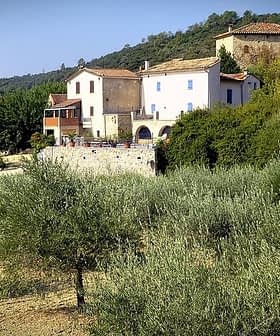Concerns with the olive oil panel test were aired at the last meeting of the European Commission’s Advisory Group on Olives and Derived Products.
According to a draft report of the November 9 meeting — just published on the EC’s website — views expressed included that the test was “expensive” and “unsustainable” long-term.
The report, which does not list the attendees nor name the source of the views expressed, says there was some discussion of proposals on physico-chemical, and “especially organoleptic” issues.
In what appears in parts to be a translation into English, the report notes that, “A representative of the industry highlighted that the issue is around since many years and it is an expensive one. The only way to differentiate virgin and extra virgin olive oil is the panel test: whilst the way it is applied across Europe should be assessed carefully, the panel test should be kept in place as no alternative method has been found so far to find out the above mentioned differentiation.”
“The President pointed out that no abolition of the panel test was asked but that the system is not sustainable in the long run.”
The report goes on to say that a trade representative at the meeting said that the problem was not with the panel test system per se, “but the way it is enforced in the (European Union) Member States.”
“As (a) matter of fact, no particular problems are signaled in Spain while, perhaps, it could be something related to the way the Italian authorities do enforce the panel test which creates problems over there.”
The report ends its summary of the matter noting, “The Commission concluded that it is in anyway good to have a panel test.”
Other business
Among other matters discussed at the meeting was the lack of a uniform standard for olive oil internationally. The group members looked at information from “socio-professional organizations” on export problems involving the United States and Australia “due to existing differences of national standards in other countries.”
The meeting also heard a call from producers for an olive oil market observatory to be set up and received briefings on the status of EU rules on allowable health claims for olive oil; of free trade negotiations with countries including Israel, Palestine and Morocco; and the current reform of the EC’s Common Agricultural Policy (CAP) subsidy system.
Proposed post-2013 CAP ‘green’ measures “triggered a lively exchange of views.” A producers’ representative said the sector was, “trying to improve and to achieve a better level of quality,” but the reforms put these efforts at risk.
Election
Portugal’s José Maria Amorim Falcão, from European farmer federation Copa-Cogeca, was unanimously elected vice chairman of the advisory group. According to a separate report, on the group’s meeting on June 7 last year, Gennaro Forcella, from Italy, was elected chairman at that meeting and Greece’s Léonidas Vostanis was also elected a vice chairman.
Filo della Torre
The attendees marked a minute of silence in honor of former UNAPROL director Ranieri Filo della Torre, who died in Rome shortly before the meeting. He had been “a valuable colleague promoting olive oil and its production.”
EC Advisory Groups
The Advisory Group on Olives and Derived Products usually meets every June and November. The agenda for its next meeting has not been made public but according to the report on its meeting last June, it is due to revisit issues relating to the allowable alkyl-ester level in olive oil.
A note above the past meeting reports says that the opinions expressed in them represent the points of view of the meeting participants from agriculture-related NGOs and they, “cannot, under any circumstances, be attributed to the European Commission.”
The Commission has various advisory groups in the agricultural sector and they usually include various representatives of COPA-COGECA, as well as trade, industry and consumer delegates.









